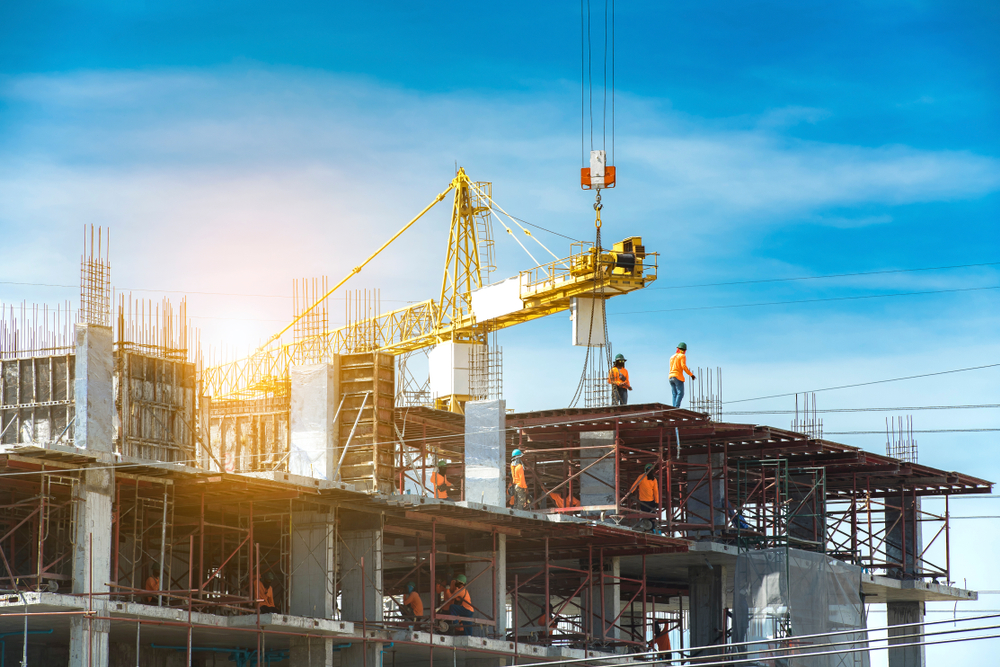Construction sites are dangerous workplaces, and some of the most hazardous tasks involve those that are conducted from heights. If you work on a construction site in New York, it’s important to be aware of the legal protections afforded by the Scaffold Law. Critically, this statute doesn’t only apply to scaffolds — it covers a wide array of heigh-related tasks on construction sites. In the event you were injured due to a violation of this law, you may be entitled to file a personal injury lawsuit to recover your damages.
What Is New York’s Scaffold Law?
New York Labor Law § 240 imposes specific legal responsibilities on contractors and property owners to help protect construction workers who are engaged in certain activities on a job site. However, it’s vital to be aware that the law doesn’t only apply to scaffolds or work being carried out on them. While it is referred to as the “Scaffold Law,” this statute also specifically lists slings, hangers, hoists, stays, blocks, pulleys, braces, irons, and ropes.
The Scaffold law imposes absolute liability for certain gravity-related accidents that occur on construction sites. This means that a victim would not need to prove a third party’s negligence to recover their economic and non-economic losses in a personal injury action. They would only need to establish that a labor law violation was the proximate cause of their injuries.
What Construction Activities are Covered Under New York’s Scaffold Law?
New York’s Scaffold Law applies to a wide range of activities on construction sites — and a variety of workers who carry out their tasks from heights. General laborers, window washers, bricklayers, electricians, carpenters, welders, painters, and technicians are just a few types of workers the statute was drafted to protect. Specifically, the Scaffold Law covers gravity-related accidents in connection with the following seven activities on a job site:
- Erection
- Demolition
- Repairing
- Altering
- Painting
- Cleaning
- Pointing
In addition, New York’s Scaffold Law protects workers from objects falling from heights. But it’s essential to understand that a falling object itself is not enough to create a labor law violation — the object must have fallen as a result of a contractor’s failure to provide a proper elevation device. Liability will not be imposed under the law unless there is a statutory violation.
Compensation for Scaffold Law Violations
If an owner or contractor fails to provide adequate safety gear to workers conducting their tasks from heights, they can be held liable for any injuries that arise as a result — even if they did not exercise direct supervision over the work. In these cases, a victim may be entitled to not only Workers’ Compensation benefits but also may be able to pursue a personal injury action against a responsible third party. In doing so, you may be able to obtain compensation for both your economic and non-economic damages.
Economic damages that can be recovered for a scaffold accident in a personal injury lawsuit can include unreimbursed medical expenses, lost wages, and out-of-pocket costs. An award of non-economic losses, also referred to as “pain and suffering” damages, is meant to compensate for the physical pain, mental anguish, and loss of enjoyment of life experienced in connection with a scaffold accident. In cases where it can be demonstrated that a defendant acted with recklessness, wantonness, willful negligence, or a conscious disregard for the safety of others, punitive damages may be awarded to a victim. These damages are meant to punish the defendant for their misconduct and deter others from engaging in similar wrongdoing.
Contact an Experienced New York Personal Injury Attorney
If you were injured on a construction site caused by a violation of New York’s Scaffold Law, you may be entitled to pursue a personal injury action to recover your damages. An experienced personal injury attorney can best advise you regarding your legal rights and fight for the maximum compensation you deserve. The Dearie Law Firm, P.C. has represented construction accident victims for over three decades and provides skillful advocacy to secure the best possible results in each unique case. Contact us today for a consultation.

